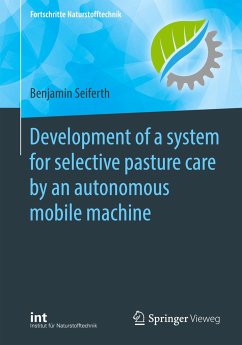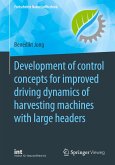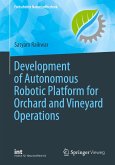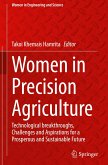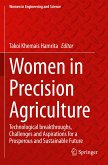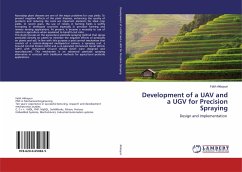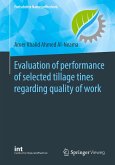This book examines the possibility of automating pasture care by fusing conventional technologies with modern sensor technologies, including the accompanying electrification. It subsequently explores the feasibility and benefits of such a system on the basis of a prototype.
The overall challenge in fodder production, and in milk and meat production, is to shift the focus away from the economic aspects and toward achieving a better balance with ecological and societal aspects. In the future, pastureland will become an increasingly valuable resource. Good pasture turf is the basis of high grazing performance and an efficient grazing farm; reduced quantity and quality of pasture forage are chiefly due to insufficient pasture care.
The prototype developed and discussed here, based on a commercially available remote-controlled mulcher, performs the selective pasture maintenance needed for precision farming. The vehicle has been upgradedwith a GPS system for automatic guidance, while a 2D laser scanner is used to localise relevant spots in real-time. The pasture maintenance operations include mulching of un-grazed spots and reseeding of damage done by footsteps. The book presents the results of field tests on effective spot detection and the fuel-saving benefits of selective mulching.
The overall challenge in fodder production, and in milk and meat production, is to shift the focus away from the economic aspects and toward achieving a better balance with ecological and societal aspects. In the future, pastureland will become an increasingly valuable resource. Good pasture turf is the basis of high grazing performance and an efficient grazing farm; reduced quantity and quality of pasture forage are chiefly due to insufficient pasture care.
The prototype developed and discussed here, based on a commercially available remote-controlled mulcher, performs the selective pasture maintenance needed for precision farming. The vehicle has been upgradedwith a GPS system for automatic guidance, while a 2D laser scanner is used to localise relevant spots in real-time. The pasture maintenance operations include mulching of un-grazed spots and reseeding of damage done by footsteps. The book presents the results of field tests on effective spot detection and the fuel-saving benefits of selective mulching.

